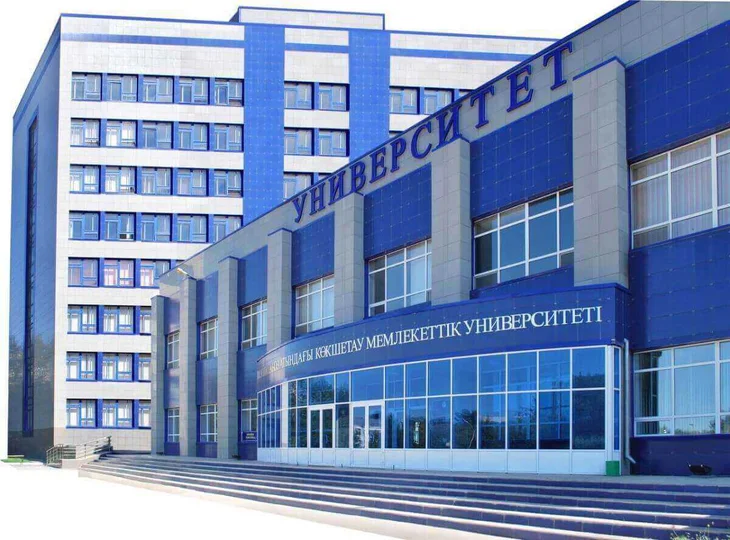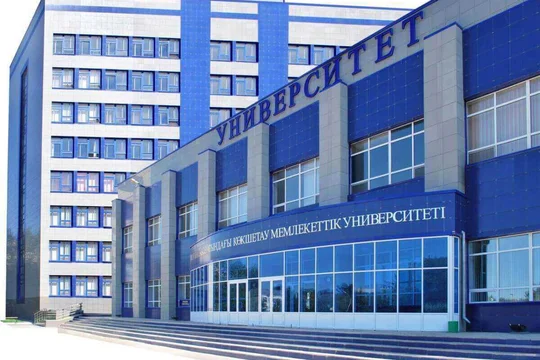6B01601 «History and Religious Studies»(Major)

Educational program code
6B01601
Language of instruction
Kazakh, Russian
Learning level
Undergraduate
Duration of study
4 year
Specialized subjects
The World History
Geography
Objectives of the educational program
- Formation of a system of historical and religious knowledge in a bachelor of pedagogical education, capable of correctly applying the acquired knowledge in professional activities and able to organize the educational process at a modern - scientific level.
- Education of students in the spirit of Kazakhstani patriotism, religious tolerance, tolerance based on universal and social-personal values
- Intellectual development and self-realization of the student’s personality through participation in research, design, and practical activities in various fields of historical and religious knowledge; mastery of modern educational technologies, including information technologies, ensuring the implementation of the requirements of school standards-
- Improving professional and personal socialization skills (leadership, relationship management, teamwork, etc.) for the effective integration of future teachers into the modern educational environment
- Information Communication Technology
- History of Ancient World
- Criteria-based assessment technology
- Physical Training
- History of Kazakhstan
- Religious anthropology
- Introduction to the pedagogical profession
- Cultural Studies
- Study training archive and museum practice
- Political Studies
- Theory and methods of educational work
- Academic writing
- Foreign language
- Study training practice (archeological)
- In-company pedagogical internship
- Academic writing
- History of the Ancient World
- Archeology
- Social Studies
- Management and digitalization of education
- Destructive and totalitarian currents
- Sociology religions
- Methods of teaching religion studies
- Inclusive education
- The Kazakh (russian) language
- History of Primitive Society
- Development physiology of pupils
- Museology and Archival Studies
- Pedagogy
- Psychology
- Методика преподавания истории
- History of Turco Nations
- Philosophy
- Ethnology
- Historiography and the study of world history
- History of World Religions
- Psychology of religion
- European reform movement
- Accessorial Historical Disciplines
- Modern history of Kazakhstan and Central Asia
- Culture of the Kazakh people and the values of Islam
- Ancient and Medieval history of Kazakhstan
- History of Public Administration
- History of Asia and Africa in Middle Ages
- Historical geography
- History and culture of the CIS
- Christian theology
- The history of the Middle Ages of Eastern countries
- The civilization of Asia and Africa in newerst, the newest time
- Ecology and sustainable development
- History of Islamic theology
- History of world civilizations
- Basick of religious culture
- Religious culture of the peoples of Kazakhstan
- Medieval history of Kazakhstan and Central Asia
- Ethnography of the peoples of Central Asia and Kazakhstan
- The civilization of Western countries in the Middle Ages
- Fundamentals of law and anti-corruption culture
- Life safety basics
- History of International Relations
- Shokan studies
- Fundaments of Economic and enterprise
- Modern history of Kazakhstan
- New modern history of Asia and Africa
- Modern and Newer History of Europe and America
Learning outcomes and competencies
- Demonstrate basic knowledge in the field of social, humanitarian, natural sciences, contributing to the formation of a harmonious personality with a broad outlook, high culture of thinking, tolerance and humanism;
- Apply communication skills in the state and foreign languages for further self-education and self-improvement, implementation of business contacts, professional communication, interethnic communication;
- Apply in practice knowledge in the field of digital educational technologies to improve the pedagogical skills of a teacher in the context of updating the educational program and introducing a criterion-based assessment system (SAS, SAT);
- Demonstrate leadership qualities in defending their own civic position on the basis of a humanistic worldview for the organization of the educational process, incl. inclusive education;
- Critically assess historical events to reconstruct the early stages of the development of human society, individual phenomena, everyday activities, etc. based on various categories of historical monuments and sources; compare and highlight the signs of different civilizations; demonstrate knowledge about various forms of social and political system, the role of the individual in history;
- Evaluate the history, culture and religion of the Kazakh and Turkic peoples as part of the world history and world civilization; apply the knowledge gained in research work in the activities of archaeological, ethnographic expeditions to form patriotism and socially significant qualities;
- Use in historical research the basic knowledge in the history of the countries of Europe and America, Asia and Africa to identify the cause-and-effect relationships of historical processes and an objective assessment of the activities of historical figures; classify historical sources for their practical use;
- Use knowledge in the history of world religions to analyze the religious state of society at different stages of its development and formation of tolerance and religious tolerance in students;
- Demonstrate knowledge of the history and culture of the CIS, modern trends in world political development; analyze positions of the CIS and the international community on national security issues taking into account religious factors;
- Use innovative pedagogical technologies in research and project activities taking into account the updated content of education in the Republic of Kazakhstan and the system of criteria-based assessment; develop original educational and methodological documentation in accordance with modern educational trends for the formation of an individual style of professional activity; use various means of physical culture for psychophysical training and self-preparation for various types of professional activity.
